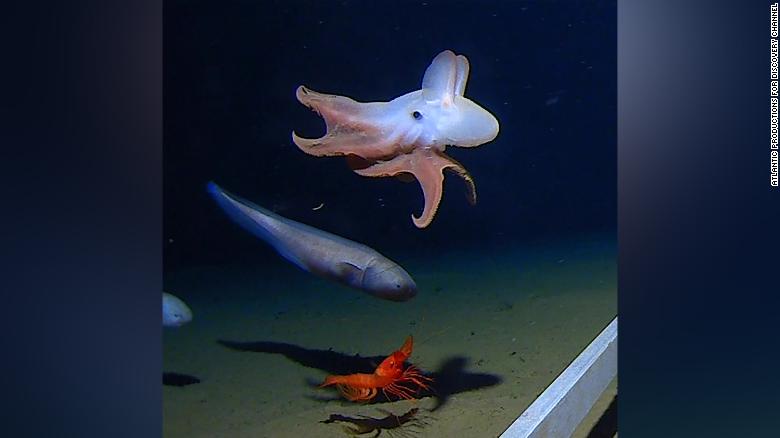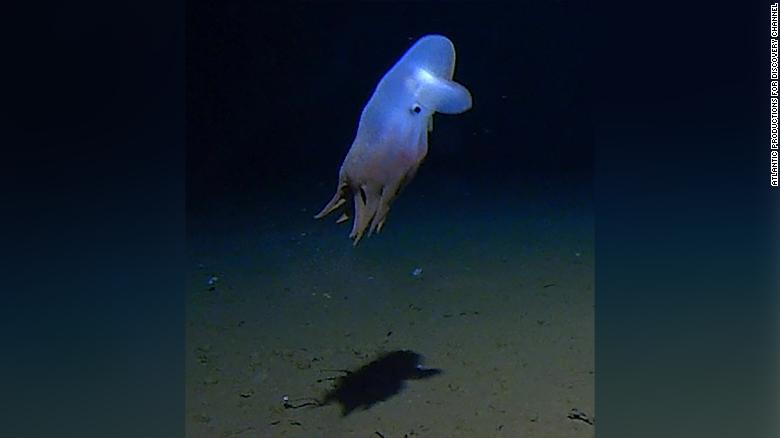The deepest-known octopus in the world has been captured on video nearly 7000 metres beneath the ocean's surface.
The Grimpoteuthis octopus, more commonly known as the Dumbo octopus, was recorded at a depth of 6957 metres in the hadal zone of the Indian Ocean, where sunlight cannot penetrate.
Marine ecologist Alan Jamieson, who led the team that made the discovery, said having completed more than 100 dives, he was shocked when the octopus was spotted.

"It shows that are still surprises to be made with big animals," he said.
"Quite often you hear about new species and they tend to be tiny worms and small crustaceans - this is a great big octopus."
Explorers were astonished by their discovery, with the creature found deeper than any other octopus ever recorded, according to the Journal of Marine Biology.
Another Dumbo octopus was found at 5760 metres in last April's expedition to the Java Trench, the deepest part of the Indian Ocean.
"Suddenly in the middle of a dive about close to 6000 metres this Dumbo octopus just flies by the camera," Mr Jamieson said.
"Then two days later, we're doing it slightly deeper, at 7000 metres, and the camera's only on the sea floor for four minutes, this thing just comes out of the darkness, which just crawled up to the cameras - another Dumbo octopus."
The octopuses were estimated at 43 centimetres and 35 centimetres long.

Researchers are unsure whether the creatures live this deep globally or if it was "the result of chance encounter with an abnormally deep population".
To live at such depths, the creatures would have to adapt to the extreme pressure of the deep sea, according Mr Jamieson.
"They'd have to do something clever inside their cells," he said.
"If you imagine a cell is like a balloon — it's going to want to collapse under pressure. So, it will need some smart biochemistry to make sure it retains that sphere."
The Dumbo octopus is not only the deepest dwelling of its species, known to live more than 3200 metres below the ocean's surface, it is also known as the "cutest octopus in the world", according to National Geographic.
The animal's fins resemble the ears of Disney character Dumbo the elephant. The Dumbo genesis move slowly by flapping their ear-like fins and use their arms to steer.
from 9News https://ift.tt/36ZlRQb
via IFTTT


0 Comments